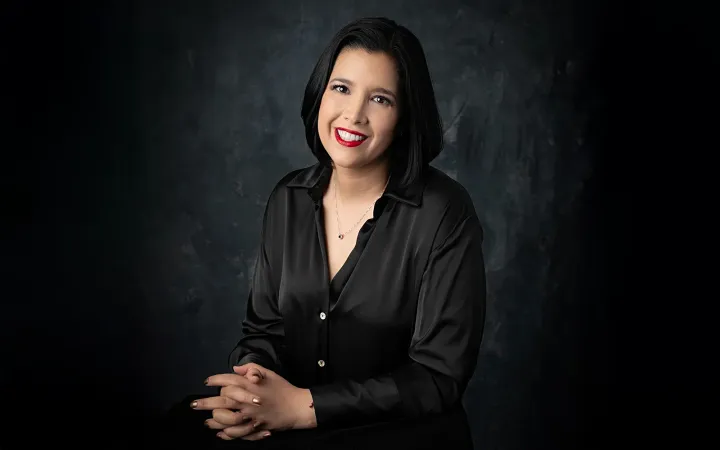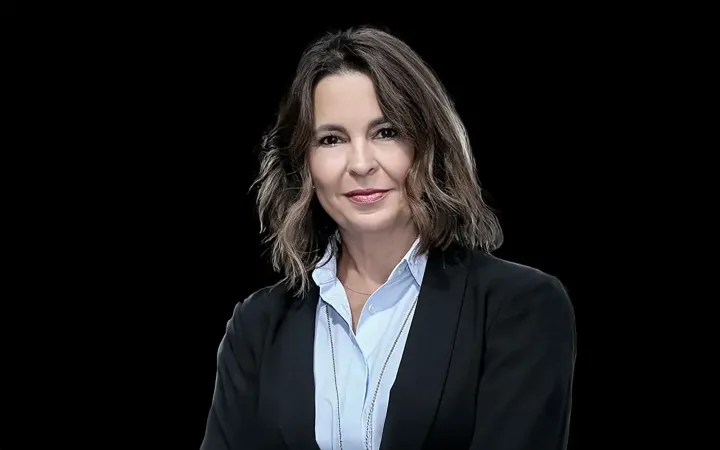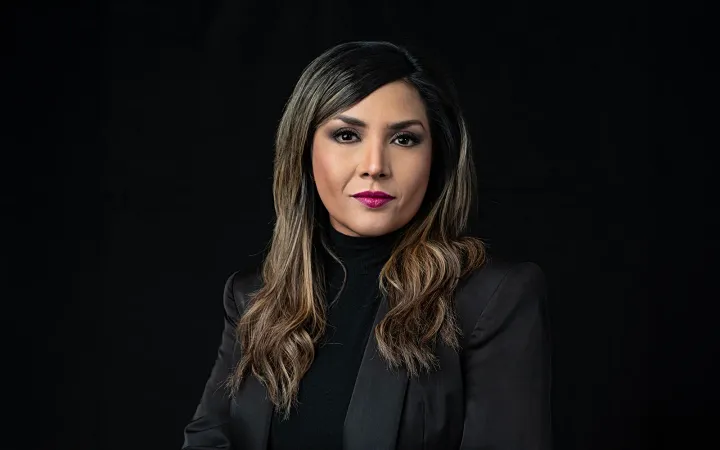Por Adela Navarro Bello
En una ocasión, hace ya algunos sexenios, cuando Enrique Peña Nieto era presidente de México y Miguel Osorio Chong secretario de Gobernación, este último convocó a una reunión a directores de medios de comunicación de los estados del norte porque aquellas entidades eran (y son) las más afectadas por la violencia e inseguridad del narcotráfico y el crimen organizado.
La reunión fue en una oficina alterna a las de la calle de Bucareli en Ciudad de México que ocupa Gobernación. Acudieron siete directores de medios de los estados del norte, entre ellos ZETA. Osorio intentó ser generoso y dijo que los había reunido para escucharlos y ver cómo el gobierno de Peña y él, podían ayudarlos a ejercer el periodismo de una forma segura.
Escuchó, le solicitaron, ofreció y concedió toda suerte de artilugios para la protección física de instalaciones y personas: cámaras de seguridad, presencia de militares, blindaje, equipo de protección. Sólo dos cosas negó Osorio: alguno de los presentes le sugirió no cobrar la contribución del IMSS porque no atendían a los colaboradores del diario de manera eficiente y profesional, y la petición de ZETA.
Cuando concluyeron de hablar el resto de los directores de medios, tocó el turno de ZETA y el secretario de Gobernación preguntó “Y a ti, ¿con qué te puedo apoyar?”. La respuesta fue que nosotros le saldríamos muy baratos, que nada más requeríamos dos cosas: que nos proveyeran de información, particularmente los Generales de la II Región Militar y de la II Zona que por entonces aún encabezaban operativos contra la criminalidad organizada, a lo que Osorio Chong respondió: “Eso es lo único que no puedo darte: información”.
La otra petición de ZETA fue más de fondo en el funcionamiento del Gobierno de la República que por entonces tenía en su estructura a la ahora conocida como autónoma Fiscalía General de la República (FGR): se le informó, aunque ya sabía, de las amenazas que en los últimos años del sexenio de Felipe Calderón y los primeros de Peña Nieto, nuestro Semanario había recibido, así como de los atentados en los cuales nuestros compañeros fueron asesinados: Héctor Félix Miranda en 1988, Luis Valero en 1997, Francisco Javier Ortiz Franco en 2004, y al que sobrevivió Jesús Blancornelas en 1997.
Se le dijo que los narcotraficantes detrás de tales atentados (Jorge Hank Rhon como sospechoso en el de Héctor Félix) y de las amenazas, habían sido y eran impunes, protegidos por la entonces PGR, la Policía Federal, policías judiciales, ministeriales y otras corporaciones como las municipales. Que ninguna entidad investigaba y denunciaba públicamente las fechorías y los actos de violencia como homicidios, secuestros y amenazas, y por lo tanto, cuando periodistas como en el caso de ZETA lo revelaban en sus reportajes, los atacados y amenazados eran los comunicadores, que podría él motivar la investigación y la denuncia pública para que el blanco de amenazas y atentados no fueran los mensajeros, sino ellos, las autoridades, por hacer su trabajo.
De esa petición no hubo ni compromiso ni negativa, sólo una reflexión a que cada quien en su sector hiciera lo suyo.
En la actualidad, el clima de inseguridad en México es igual o peor al del inicio del sexenio de Enrique Peña Nieto. El ex Presidente Andrés Manuel López Obrador concluyó su mandato con el mayor número de asesinatos en la historia reciente: más de 200 mil, con 47 periodistas asesinados en el mismo periodo.
La impunidad que se otorga a los criminales y a los narcotraficantes en el sexenio de la Presidenta Claudia Sheinbaum o en la administración de Marina del Pilar Ávila Olmeda en Baja California, también es la misma. Siguen sin perseguir a los criminales y éstos, con su impunidad comprada a billetes, vulneran a los periodistas.
El domingo 29 de diciembre, dos días después que saliera a circulación la última edición impresa del 2024 de ZETA, criminales anónimos y no detenidos colgaron una manta haciendo referencia al Semanario, debido y respondiendo desde la criminalidad sin castigo al reportaje publicado el viernes 27. El mensaje del narcotráfico decía: “Esto va para todos los lacras CDS traicioneros y periódicos las flechas no tienen que ver con los hermanos ni tregua ni nada, esta guerra es entre cabrones no contra mujeres y niños como lo hicieron en SD y en TJ. No an podido ni podrán X (dos flechas entrecruzadas)19 100% FLECHAS los comerciantes que han matado es por el cobro de piso de los mismos CDS. Quieren calentar a las flechas periódico ZETA dónde quedó tu reputación ahora tus notas son sin fundamento Tijuana para los tijuanenses. Atte: La FEA”.
Para esta casa editorial, los sospechosos de la autoría de la narcomanta son tres: policías de la Fuerza Estatal de Seguridad Ciudadana, el señalado narcotraficante Brayan Corona alias El Apache, cuya célula parece firmar la manta, y otro notorio criminal también señalado de ser “objetivo prioritario”: Pablo Huerta Nuño alias El Flaquito.
Todos, policías, y los dos ubicados públicamente como narcotraficantes, no han enfrentado la justicia. A los primeros se las da la charola y el cargo que ostentan, con el cual se cubren para cometer ilícitos. A los segundos se les provee la incapacidad, ineficiencia y complicidad a partir del soborno que mantienen con las autoridades que deberían investigarlos, vincularlos a proceso, solicitar órdenes de aprehensión y detenerlos, pero no lo hacen.
Una vez más, la seguridad de ZETA y quienes ahí laboramos haciendo periodismo de investigación, ha sido vulnerada, y la respuesta de las autoridades, limitada. La Fiscalía General del Estado (FGE) intentó aventarle la investigación por “terrorismo” a la Fiscalía General de la República para deslindarse de indagar los hechos donde se hizo mención de ZETA.
La FGR ha reaccionado acorde al abrir una carpeta de investigación por el delito de asociación delictuosa contra quien resulte responsable de comprometer la seguridad de los periodistas del Semanario, y de las autoridades locales, sólo el alcalde de Tijuana, Ismael Burgueño, se comunicó con la dirección de ZETA para ofrecer su apoyo. Lo mismo la Comisión Nacional de los Derechos Humanos(CNDH) y el Mecanismo de Protección a Periodistas, tanto el estatal como el local, más que nada para ofrecer un pírrico apoyo a manera de análisis de riesgo, botón de pánico, rondines de patrullas.
Los organismos de defensa de periodistas emitieron alertas haciendo un llamado a la investigación por parte de autoridades federales y estatales para esclarecer los hechos, indagar, deslindar responsabilidades, detener y procesar, para garantizar la seguridad de los periodistas.
Hasta el momento nada ha sucedido, no hay avances, no hay información, y los criminales que colgaron la manta -y los sospechosos de hacerlo- continúan atentando libremente contra el mensajero, porque es evidente que en Baja California, no hay autoridad que lo proteja.

Las opiniones expresadas son responsabilidad de sus autoras y son absolutamente independientes a la postura y línea editorial de Opinión 51.






Comments ()